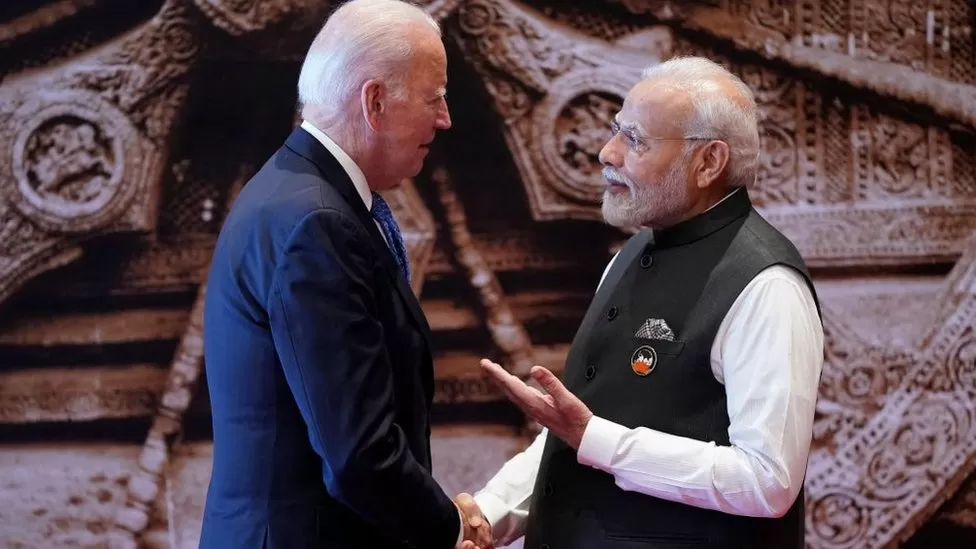11 Sep 2023
Introduction:
US President Joe Biden’s recent visit to India for the G20 summit garnered significant attention, particularly due to his remarks on human rights and the importance of a free press in the country. In this article, we will delve into the significance of President Biden’s statements and their implications on India’s human rights landscape, while also considering the broader context of US-India relations.
Human Rights Concerns in India:
During his press conference in Hanoi, President Biden made it clear that he had substantive discussions with Prime Minister Narendra Modi regarding the strengthening of the India-US relationship. However, what captured the spotlight were his comments on human rights in India. Biden stated that he raised the crucial issue of respecting human rights and emphasized the vital role that civil society and a free press play in building a strong and prosperous nation.
India’s human rights track record has been a subject of concern for activists and rights groups. Allegations of attacks on minorities, especially Muslims, have arisen since the Bharatiya Janata Party (BJP) came to power in 2014. While the Indian government has consistently denied these allegations, they remain a topic of international scrutiny.
The World Press Freedom Index, published by Reporters Without Borders (RSF), revealed a concerning trend for India. The country’s ranking dropped 11 places from the previous year, now standing at 161 out of 180 countries. This decline highlights the challenges faced by journalists and media outlets in the country, which is a matter of global concern.
Biden’s Diplomatic Approach:
President Biden’s approach to addressing these issues in India appears diplomatic. The United States, while acknowledging its concerns about the state of human rights and freedom of the press, avoids adopting a lecturing or confrontational stance. This approach reflects the understanding of the complex dynamics at play between the two nations.
India, with its vast population and growing economy, is viewed as a crucial ally in the context of countering China’s influence on the global stage. As a result, the US is careful not to jeopardize its strategic relationship with India while simultaneously advocating for human rights and free speech.
India-Middle East-Europe Economic Corridor Deal:
During his visit, President Biden also highlighted the India-Middle East-Europe economic corridor deal announced at the G20 summit. This ambitious project aims to connect Middle Eastern countries to India through a network of rail and port infrastructure. Analysts see it as a significant counter to China’s Belt and Road initiative, further underlining the importance of India in US foreign policy.
Conclusion:
President Joe Biden’s remarks on human rights and the free press during his visit to India reflect the United States’ commitment to advocating for these fundamental principles globally. While these comments have drawn attention to India’s human rights situation, they are also a testament to the delicate balance between diplomacy and advocacy in international relations.
The evolving relationship between the United States and India, as well as India’s role in shaping regional and global dynamics, make this dialogue essential. As we navigate the complexities of international relations, it is crucial to keep the conversation on human rights and free speech alive while respecting the unique challenges and opportunities that each nation presents.
The information provided in this article is based on the following news sources:
- BBC News: The primary source for the article is the report from BBC News, which covered US President Joe Biden’s remarks on human rights and the free press during his visit to India for the G20 summit.
- Reporters Without Borders (RSF): The World Press Freedom Index ranking for India mentioned in the article is sourced from RSF’s annual report, which provides insights into the state of press freedom around the world.
These reputable news sources have played a crucial role in providing accurate and timely information on the topics discussed in this article.

